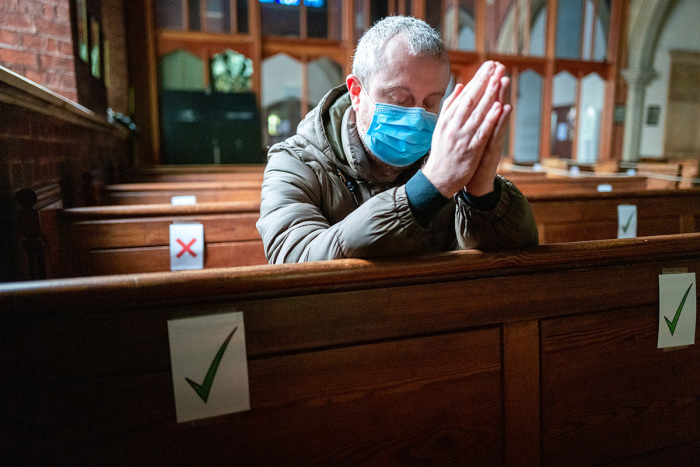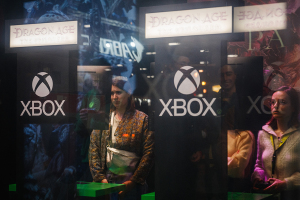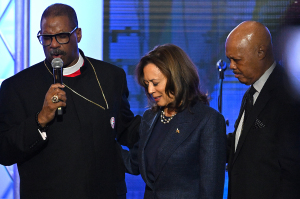Fewer than half of American adults pray daily; religiously unaffiliated grows: study

Less than half of American adults pray daily as church membership continues to decline and the ranks of the religiously unaffiliated swells, according to a study published by the Pew Research Center.
Data from the National Public Opinion Reference Survey conducted by Pew Research Center from May 29 to Aug. 25 among a nationally representative group of respondents found that 45% of U.S. adults say they pray daily compared to 58% who reported doing so in 2007 and 55% who said they prayed daily in 2014.
Some 32% said they seldom or never pray, which is close to the 29% of U.S. adults who identify as religious “nones” — people who describe themselves as atheists, agnostics or “nothing in particular,” the study says.
The nation’s share of religious “nones” is now 6% higher than it was five years ago and 10% higher than it was a decade ago, showing what appears to be a galloping trend of secularization.
Even though Christians are still the largest religious group in the U.S., they now only make up a collective 63% of the adult population. When the Pew Research Center began measuring religious identity in 2007, Christians outnumbered “nones” 78% to 16%.
The study noted that the decline in the number of Christians nationwide was mostly concentrated among respondents who identified as Protestant. Their numbers declined by 10% in the last decade and 4% in the last five years.
While the share of Catholics had fallen between 2007 and 2014 to 21% of the adult population, that number remains the same today.
Protestants were found to be predominantly “born-again or [E]vangelical Christian,” among both black and white respondents in the study. Some 58% of white Protestants identify as born-again or Evangelical, while 66% of blacks did so.
When it comes to church attendance, black Evangelical Christians were found to be the most faithful churchgoers, with 70% of them attending services monthly. Some 63% of black Protestants reported attending church religious services at least once or twice monthly. Only 56% of white Evangelical Protestants said they attended religious services at least once a month.
Among Catholics, church attendance fell even lower. Just 35% reported attending services monthly or more.
Earlier this year, political scientists David E. Campbell and Geoffrey C. Layman of the University of Notre Dame and John C. Green of the University of Akron highlighted data in their new book, Secular Surge: A New Fault Line in American Politics, showing that the marrying of religion and politics among conservatives to create the well-known and powerful religious right had led some Americans to abandon their ties to the Christian faith and join the ranks of secularists.
According to the researchers, the rising tide of secularism in the U.S. means that some voters are on opposite sides of a religious-secular fault line fueling the flames of political polarization.
“[A] secular-religious divide in politics also may illuminate why, above and beyond their ideological differences, ordinary Democrats and Republicans increasingly dislike and distrust the leaders and members of the other political camp — what political scientists have labeled ‘affective polarization,'" they wrote. "Their very different worldviews may spur Secularists and Religionists to view each other with suspicion and perhaps even hostility, thus encouraging animosity and distrust between their political teams."




























